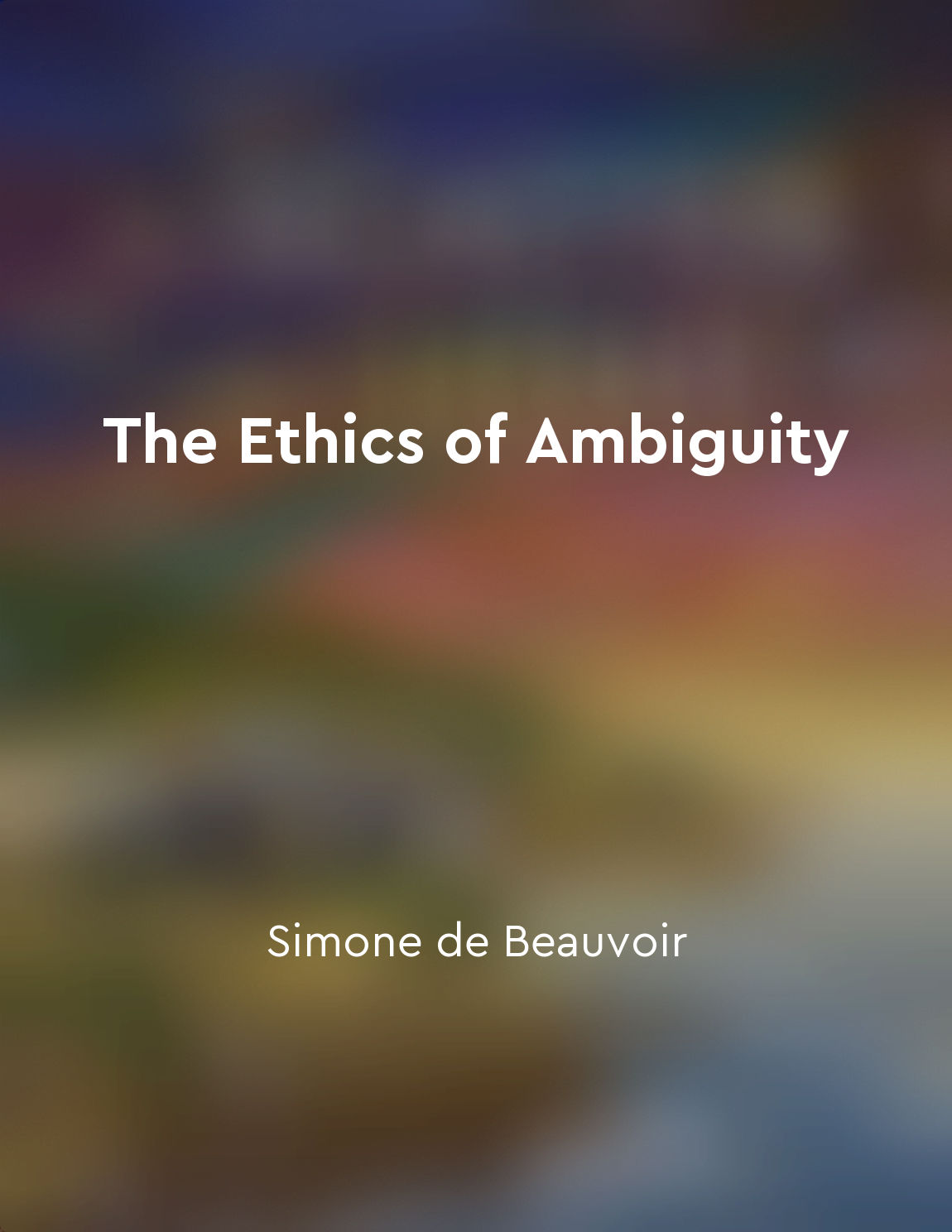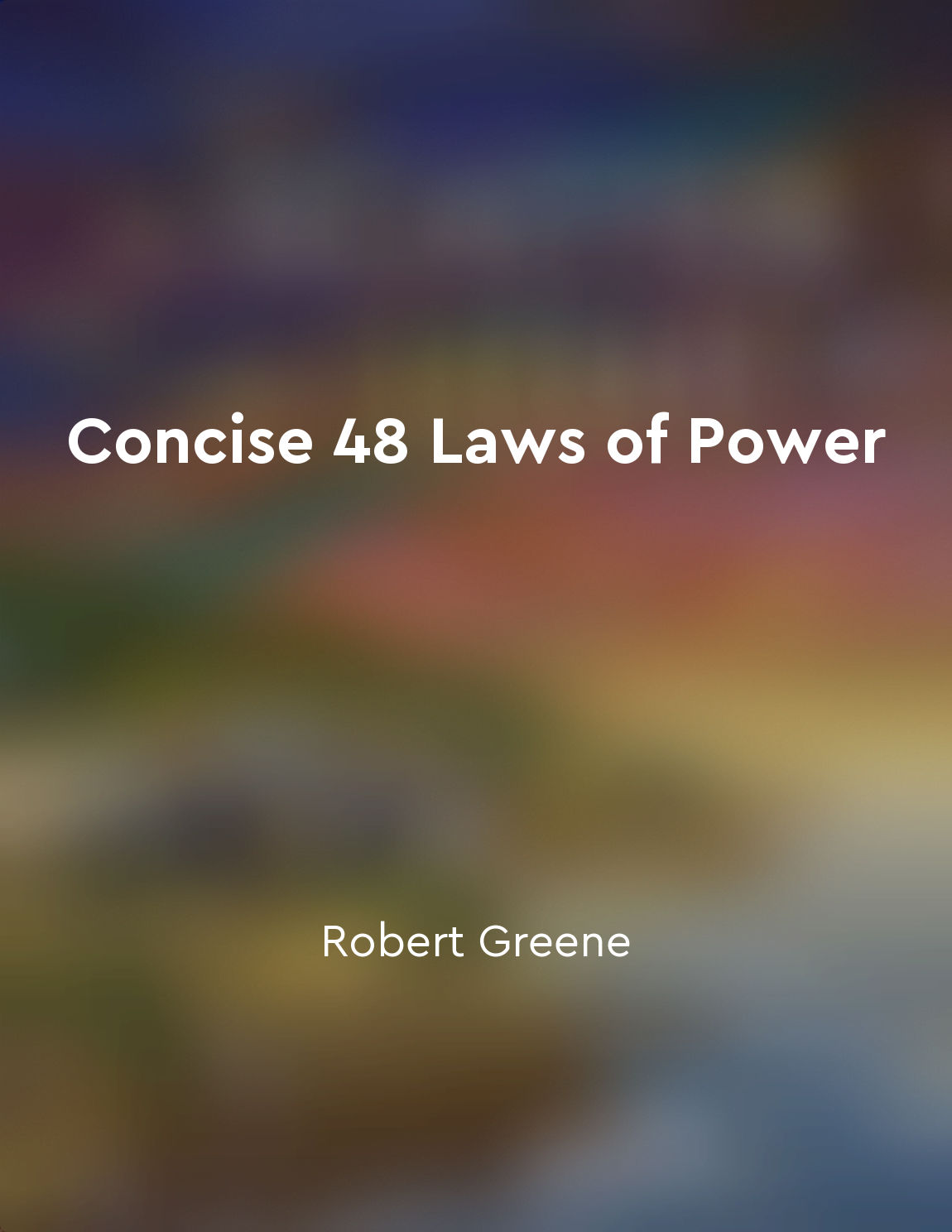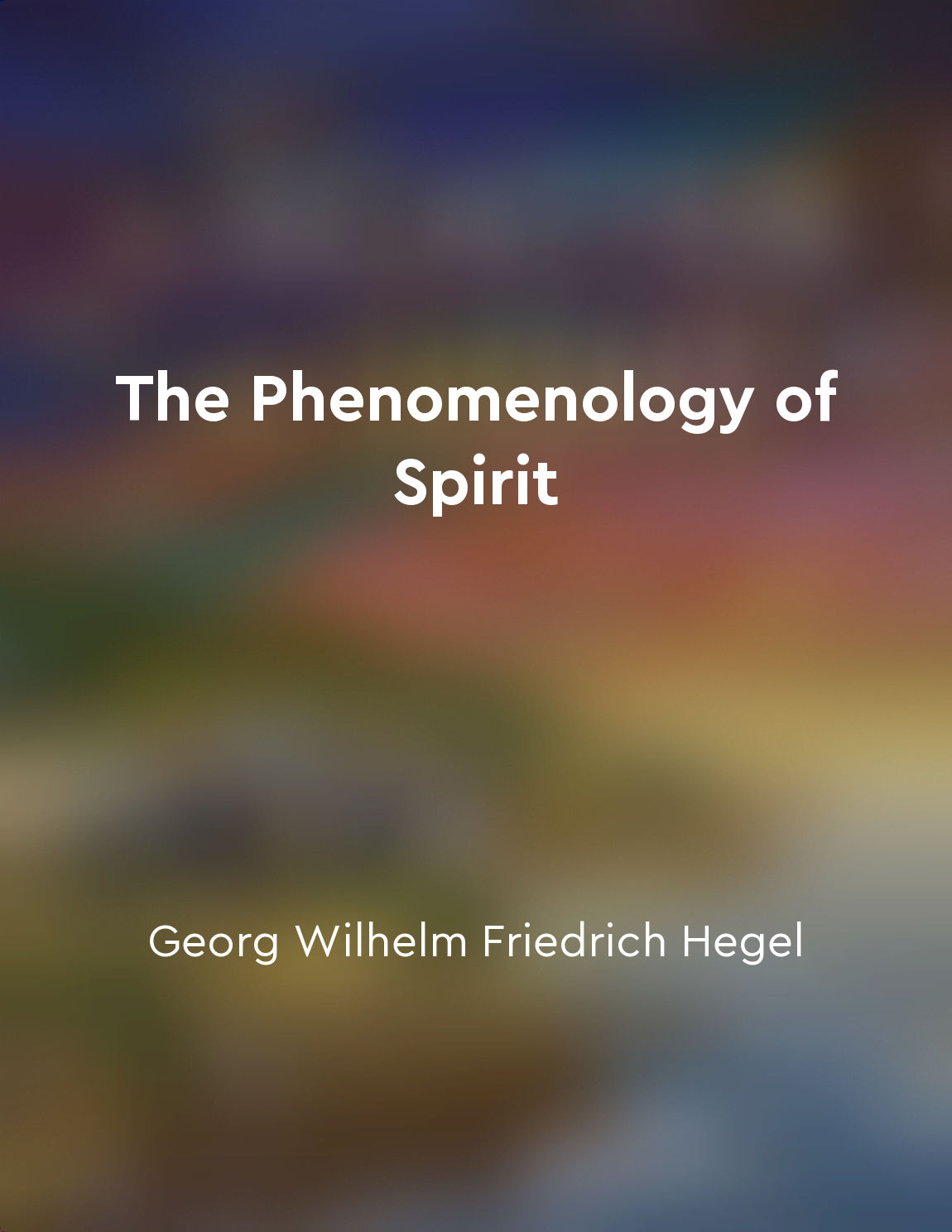Slave morality promotes weakness from "summary" of The Genealogy of Morals by Friedrich Wilhelm Nietzsche,Horace Barnett Samuel
In the realm of morality, a significant distinction is drawn between what is known as "master morality" and "slave morality." Master morality is characterized by values such as strength, power, and nobility, while slave morality, on the other hand, is associated with humility, meekness, and submissiveness. Slave morality, as it is understood, arises from a position of weakness and subjugation. Those who are oppressed, powerless, or marginalized adopt a moral code that justifies their circumstances and allows them to cope with their lack of agency. By emphasizing qualities such as compassion, humility, and forgiveness, slave morality serves as a means of survival and a way to endure suffering. In contrast to master morality, which exalts power and dominance, slave morality promotes a sense of virtue in being downtrodden and oppressed. This form of morality valorizes weakness and submissiveness, turning them into virtues rather than shortcomings. Ins...Similar Posts

The search for certainty can limit freedom
The human desire for certainty is a fundamental aspect of our existence. We are constantly seeking to make sense of the world a...

Inequality among mankind stems from the development of property
The disparities among individuals can trace their roots back to the emergence of property. As people began to claim ownership o...
Thurgood Marshall was a trailblazing Supreme Court justice
Thurgood Marshall was a trailblazing Supreme Court justice who made history with his groundbreaking legal victories. Born in Ba...

Master the art of negotiation by creating a compelling need in others
When it comes to negotiation, one of the most powerful tools you can wield is the ability to create a sense of urgency and nece...
Betrayal: Trust is shattered by betrayal
Trust is a fragile thing, easily broken with one wrong move. Betrayal cuts deep, like a knife to the heart, leaving wounds that...

Social and political activism
Social and political activism are essential components in the fight for racial equality and justice. This activism involves act...
Discovering the power of education
In a world where poverty and oppression seemed insurmountable, education was the key that unlocked a brighter future for many l...
Lies can be deadly
In a world where information is power, lies can be the deadliest weapon at one's disposal. They have the ability to manipulate ...
Protecting yourself from manipulation tactics
The world is full of people who will try to manipulate you for their own gain. It's a sad reality, but it's one that we must fa...

The concept becoming reality
The movement of the concept becoming reality is a complex and intricate process that unfolds within the pages of this work. It ...
